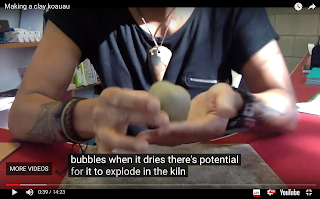Relationship based learning
How do we teach through relationships? What does that even mean? Is it... teachers who have knowledge about their students will be better able to teach them? If this is the case, then most (if not all) of my experiences in the classroom as a student, were based around something completely different.
I always saw teaching as a formal affair because most of my teachers growing up were never interested in building any kind of relationship with me. I remember vividly one teacher who made a small group of us feel special and she invited us (all who were Māori) to her house for the weekend. The weekend was spent weeding all her gardens, mowing her lawns and tidying up her garage. It wasn't until later on in life that I realised, she took us home to be her little slaves.
My saddest realisation is that the two teachers that I really feel like I connected with, were both Māori and in my final years of schooling. Mr Timoko was the maths teacher who said to me "Girl, you can do this, it's easy, I'll show you how" Sure enough with some 1 to 1 time, he helped me understand algebraic equations. Which I actually learned to love. The other teacher Mrs Urlich, took me into her Year 13 art class to sit bursary art after discovering I had not taking art in the 3rd, 4th, 5th and 6th form. I passed both bursary boards (double art) because she believed in my ability and listened to my stories about the things I did at home that were artistic. Imagine if I had encountered teachers like this in my earlier years of schooling? The world would have truly been my oyster!
Part of RBL means getting to know the students' learning styles and where they are in terms of their knowledge, abilities, and potential. More importantly, it also means getting to know their interests, personality, and background. For the teacher, this body of knowledge opens up the possibilities of growth and dramatic learning opportunities. This is the part of teaching I love.
Taking time to get to know your students will better help communicate the formal aspects of your classroom. It helps facilitate the possible connections you make. It alerts each student that he or she is seen as another being and, in response, makes them all more attentive. By slowing down and maybe not getting through the entire scope of your curriculum, you create opportunities to go deeper.
This is a topic that I am still exploring every day, and I don't yet have as much insight as I would like,

Comments
Post a Comment